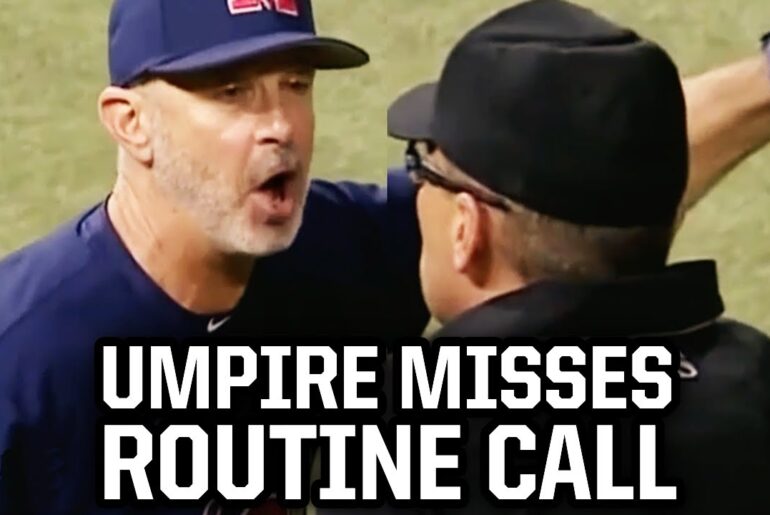Domingo Armand took to the mound for the Yankees and had a flawless performance, retiring all nine batters he faced in the first three innings. His pitches were on point, seemingly unhittable. However, during the third inning, the umpire decided to inspect Armand’s hands after noticing something unusual.
The Rosin Bag Mystery
Upon examining Armand’s hands, the umpire discovered the presence of rosin, a legal substance commonly used by pitchers to improve their grip on the ball. The umpire questioned Armand about the rosin and why it was on his hands. This raised eyebrows because Armand hadn’t been seen using the rosin bag on the mound frequently throughout the game.
Confusion and Explanation
Manager Aaron Boone was informed of the situation and clarified that rosin usage was completely legal. He explained that Armand preferred to apply rosin in the dugout rather than on the mound itself. This revelation led to a discussion among the umpires, who had to process the new information and decide on a course of action.
A Lesson, Not an Ejection
The umpires gathered and concluded that although there was an excess of rosin on Armand’s hand, it didn’t appear to be a foreign substance or significantly affecting his pitches. As a result, they decided not to eject Armand from the game. Instead, they treated the incident as a teachable moment, reminding Armand to thoroughly clean his hands when instructed to do so.
Managerial Outrage
However, the opposing team’s manager, Rocco Baldelli, expressed strong dissatisfaction with the umpires’ decision. He argued that Armand hadn’t fully complied with the warning and believed he should have been removed from the game. Baldelli called for a clearer, more objective rule regarding such incidents.
The Gray Area
The debate raised by Baldelli highlights a recurring issue in baseball—the discretionary power of umpires in making judgment calls. While the rules provide some guidance, they also grant umpires the authority to interpret and enforce them as they see fit. This discretion can sometimes lead to differing opinions and controversies, as witnessed in this case.
Continuing the Game and Moving Forward
Despite the disagreement surrounding the incident, the game proceeded, and Armand continued his impressive performance on the mound. Later on, another hand check was conducted, which seemed to bring closure to the situation. The players, umpires, and managers were able to move on, albeit with differing perspectives on the incident.
Conclusion
The hand check incident involving Domingo Armand highlighted the complexities and subjectivity inherent in the enforcement of rules in baseball. While Armand’s use of rosin was ultimately deemed permissible, the incident sparked discussions about the need for clearer guidelines and more consistency in such matters. As the game of baseball evolves, it becomes increasingly important to strike a balance between the letter of the law and its practical application on the field.



